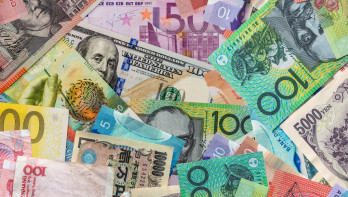Opinion Han de Jong
Calculation of the Dutch political agreement surprises
The Central Planning Bureau (CPB) has calculated the intended new government coalition's main lines agreement in the Netherlands. This yields quite remarkable results. Compared to the so-called baseline scenario, without the policies provided for in the main lines agreement, purchasing power improves (especially for families with low incomes), economic growth is higher, and poverty decreases. Also, the budget deficit turns out slightly lower than in the baseline scenario. Of course, you can always say that a bit more could have been achieved in all these areas, but that's always the case.
I think the four parties involved have happily taken note of the calculations. There is some criticism of the main lines agreement because the financial underpinning is fragile. For example, the new coalition hopes to achieve a lower EU contribution and significant staff reductions are required at the central government. The CPB believes that some of the coalition's austerity goals may prove unattainable. In the calculations, the CPB has taken this into account by using lower amounts in those cases. In the coalition's view, this may give the CPB's outcomes even more luster.
Fed Minutes
The minutes of the latest meeting of the Fed's policy committee have revealed some surprises. Chairman Powell has been saying lately that interest rate hikes are unlikely and that it's a matter of 'please be patient' until the current interest rate brings inflation under control. However, the minutes show that some committee members doubt whether the current interest rate is restrictive enough. This thinking is naturally encouraged by the disappointing inflation figures in the first months of this year and the relatively high growth of the U.S. economy. The further thought is that the economy may be less sensitive to interest rates than assumed.
This had only a brief impact on the financial markets. Stock prices briefly declined but quickly recovered. That seems understandable to me as well. It's not clear how many committee members doubt the adequacy of the current interest rate level. Moreover, the inflation figures in January, February, and March were disappointing, but this was not the case in April or at least to a much lesser extent. Therefore, I conclude that it's best to follow Powell's words that an interest rate hike is unlikely.
As I have written before, it seems certain to me that the ECB will lower the official interest rate on June 6. ECB President Christine Lagarde has been speaking regularly in press conferences about strong wage developments as the main risk factor for achieving the inflation target. This week, the ECB published figures on negotiated wages. In the first quarter, they were 4.69% higher than a year earlier. In the fourth quarter of last year, this increase was only 4.45%.
The chart shows that there is no sign of moderation yet. In a blog on the ECB's website, two ECB economists express optimism that wage growth will weaken sufficiently in the near future to achieve the inflation target. They attribute the current persistently high nature of wage growth to catch-up effects and one-time payments in wage agreements. What I miss in that analysis is commentary on labor market tightness. One must wonder whether labor market tightness will lead to higher wage growth for a somewhat longer period. I certainly hope that these ECB economists are right, but I am less certain of that than they are.

The preliminary purchasing managers' indices for the current month show a consistent picture for the industry. In all countries for which these preliminary figures have been published, an improvement was recorded in May compared to April. In the US, Japan, and the UK, the industry index has risen above 50.0. This is not the case in Germany, France, and the eurozone as a whole, although the index here also rose. The indices for the service sector present a more varied picture. In all mentioned countries except France, the confidence index in the service sector was above 50.0 in May.
Consumer Confidence Slightly Declines
Dutch consumer confidence dropped slightly in May: 22 compared to 21 in April. The slight decline follows eight months of improving confidence. Consumers were more negative about the economic climate, but their willingness to buy was slightly higher. It is reasonable to expect that consumer confidence will resume its upward trend in the coming period, driven by an improvement in purchasing power.

We already knew that the production in the Dutch industry is not doing great. The production level has been below the previous year's level for months. The turnover is equally problematic. In the first quarter of this year, it was 5.5% lower than in the first quarter of 2023. However, the graph below shows that this decline implies an improvement compared to the previous three quarters. I expect this improvement to continue in the coming quarters as the purchasing managers' index for the industry has been rising for some time and global trade is picking up. Fingers crossed.

Conclusion
The calculation of the main lines agreement is likely to turn out more positively than expected. However, doubts remain about the feasibility of some planned cuts. Time will tell.
Although some members of the Fed's policy committee doubt whether the current interest rate is high enough to contain inflation, I think the likelihood of further rate hikes is low. The next step will really be a cut. September seems a serious candidate for that.
The ECB will undoubtedly act earlier. Expect an interest rate cut in the eurozone on June 6, although relatively high wage increases will remain stubborn for the time being.
Purchasing managers in the industry have become more positive, or less negative, in May in all major countries. That's good news. Our industry is currently in a downturn, but the increasing optimism elsewhere will hopefully also help us.

Han de Jong
© DCA Market Intelligence. Op deze marktinformatie berust auteursrecht. Het is niet toegestaan de inhoud te vermenigvuldigen, distribueren, verspreiden of tegen vergoeding beschikbaar te stellen aan derden, in welke vorm dan ook, zonder de uitdrukkelijke, schriftelijke, toestemming van DCA Market Intelligence.



